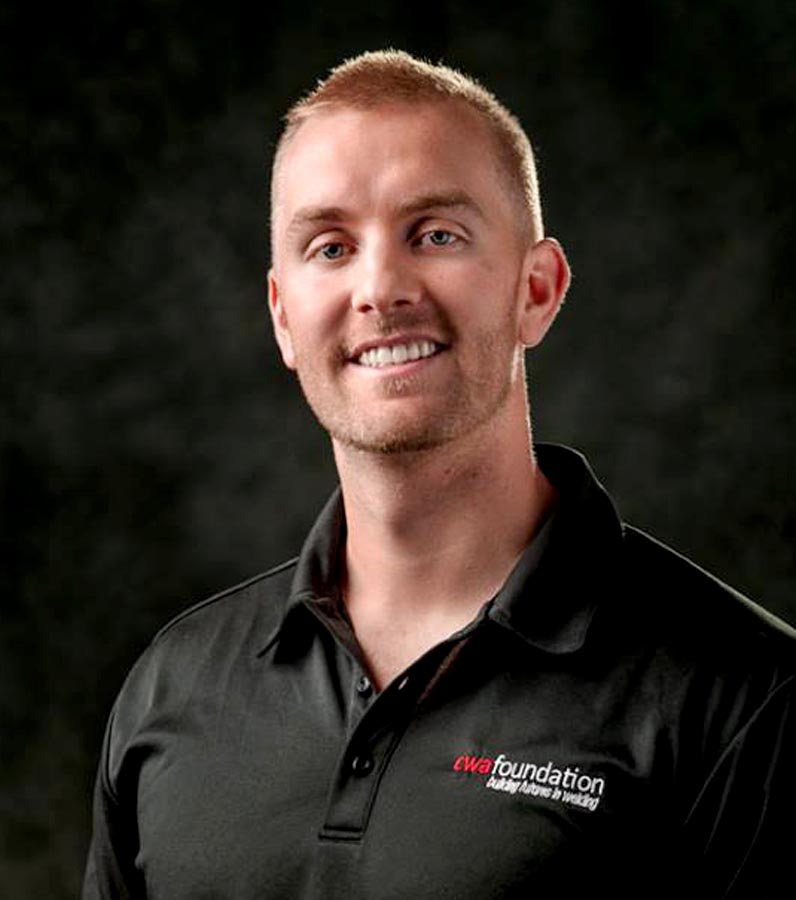
Trent Konrad
Welding grad Trent Konrad has combined two of his passions in life — teaching and welding. By doing so, he landed an influential role with the Canadian Welding Association Foundation (CWAF).
A graduate in 2006 of TRU’s three welding levels, Konrad has travelled an interesting path to be where he is today — the technical outreach officer for CWAF. Prior to joining CWAF in 2015, he taught high school welding in Calgary. Before that, he worked as a welder across Alberta while taking courses toward a Bachelor of Education and his teaching credentials. He is now on target to complete a Master of Education from the University of Lethbridge this summer.
As the outreach officer for CWAF, he oversees the delivery of youth camps that teach welding across the country, a CWAF program called Mind Over Metal. Some of these camps are specifically for girls, while others include both boys and girls, such as the camp held at TRU in July, which attracted 19 participants between the ages of 12 and 15. Other camps focus on Indigenous and at-risk youth, as well as youth in remote areas where instruction is limited or non-existent.
“With some of the kids who have come to our camps, we see them staying in school just so they have the credits and marks to be able to enrol in welding at the post-secondary level,” said Konrad. “It is important for us to make sure young people are equipped with knowledge and experiences to be able to make good choices regarding future career opportunities.”
As the interest in trades continues to grow, so does the number of camps. The number went from 13 in 2015 to 36 last year and could climb as high as 60 in 2017. Konrad anticipates that as many as 100 camps could be offered in the next two or three years, though he cautions that growth won’t come at the expense of sacrificing quality for quantity.
Aside from the camps, CWAF supports high school welding and metal work programs through paying for equipment upgrades, helping schools pay for personal protective equipment and providing students with financial awards to further their education. Money is also available for apprentices and teachers to attend workshops, conferences and other professional training.
Here are InsideTRU’s additional questions for Konrad, and his responses:
A number of the camps reach out to youth having difficulties in school and even troubles with the law. Why is that direction important to you?
“I was a student that had a hard time sitting through classroom lectures. It is important for young people to know that there are many ways to learn and be successful. Experiential learning is all about figuring out how you learn, what you enjoy doing and working hard to develop those skills and talents. Apprenticeship programs shouldn’t be looked at as option B for students and parents; trades can have just as much academic rigour as university programs and lead to equally successful careers—trust me.”
Your parents are teachers. Do you come from a long line of teachers?
“It doesn’t go much past my parents. I tried to fight becoming a teacher by going into the trades, but the allure of encouraging and seeing young people become successful in welding was too much of a draw for me not to do it.”
What is one thing you like about welding?
“It doesn’t matter what else is going on in your life, personal things, relationships, et cetera. Once you have your helmet on and concentrate on the puddle, everything else goes away.”
Final thoughts?
“I get to travel to colleges, universities and trade schools across Canada, and honestly, the quality of welding instructors at TRU is second to none. I am proud to be a TRU welding grad and thankful for the skills I developed during my time there.”

